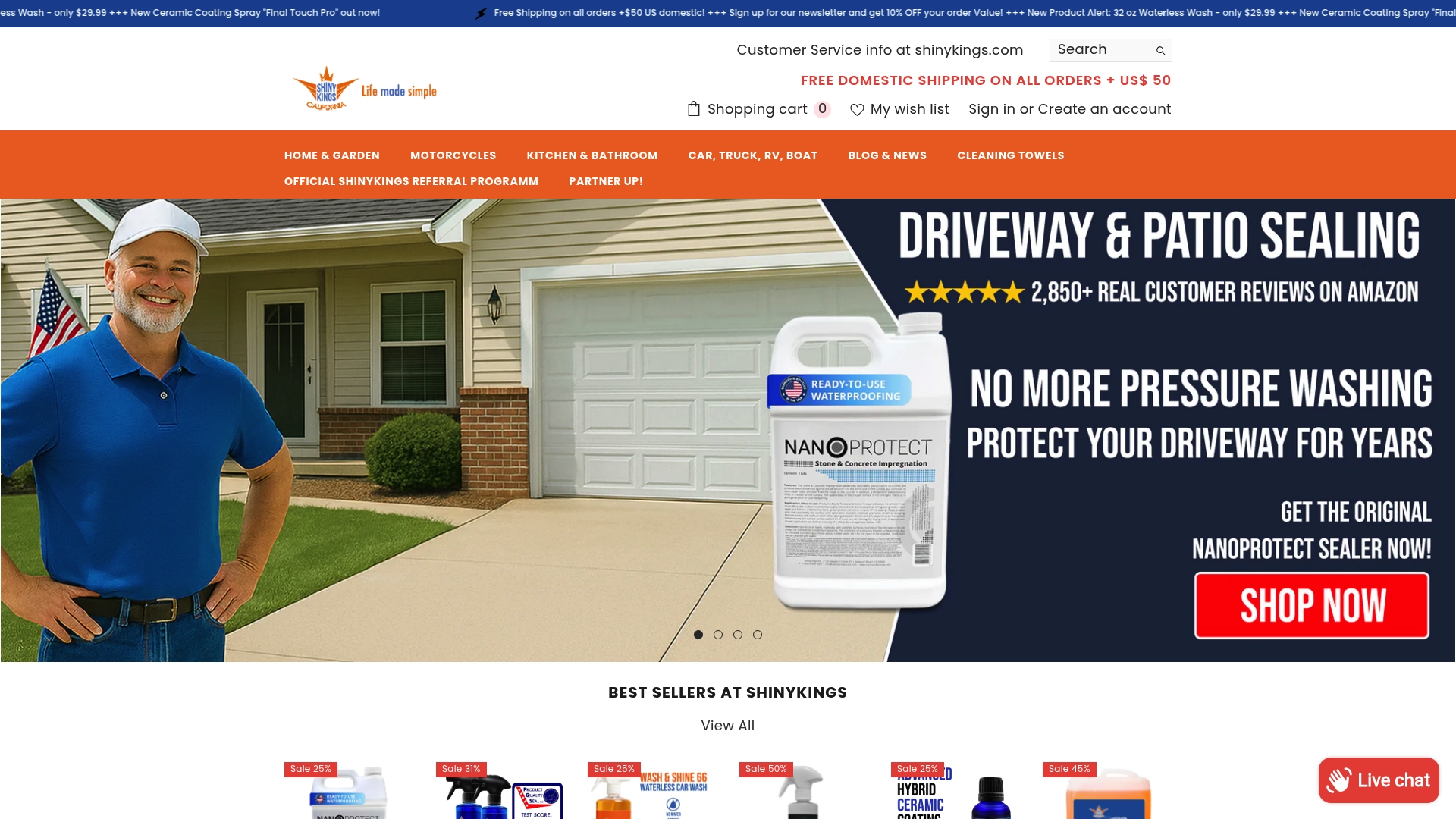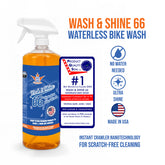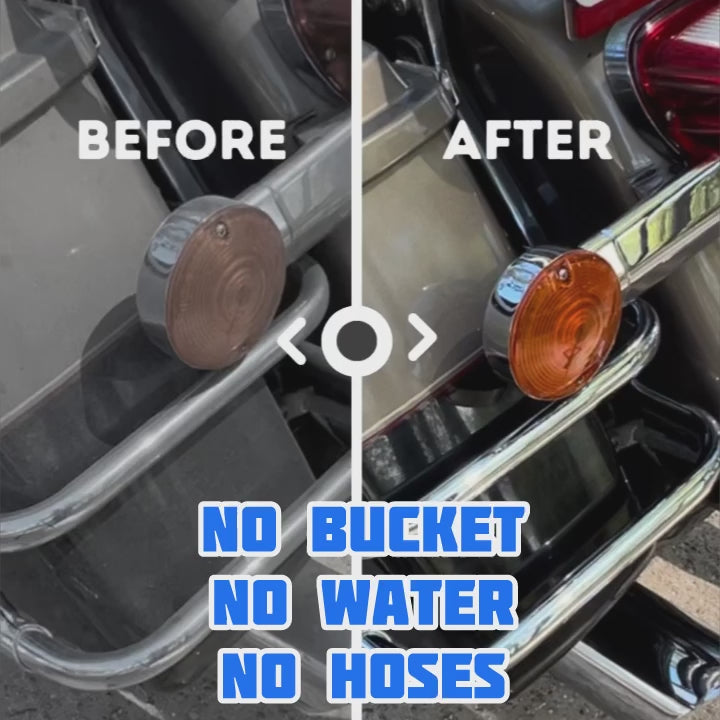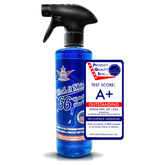What is Glass Coating? Understanding Its Importance

Glass coating sounds like something reserved for high-tech labs, yet it is reshaping homes, cars, and even office windows everywhere. What might surprise you is how Low-E glass coatings can cut home energy loss by up to 50 percent according to the US Department of Energy. Most folks still think of glass as fragile or basic, but with these coatings, glass turns into a powerhouse of strength, clarity, and efficiency that transforms everyday life in unexpected ways.
Table of Contents
- Defining Glass Coating: What Is It?
- The Science Behind Glass Coating: How It Works
- Why Glass Coating Matters for Home and Vehicle Care
- Key Benefits of Using Glass Coating Products
- Real-World Applications of Glass Coating in Daily Life
Quick Summary
| Takeaway | Explanation |
|---|---|
| Glass coating enhances durability and performance | Advanced coatings improve scratch resistance and environmental protection, prolonging the lifespan of glass surfaces. |
| Nanotechnology elevates coating effectiveness | Nanoscale coatings are engineered for precise manipulation of properties like light transmission and water repellency, enhancing functionality. |
| Glass coatings reduce maintenance needs | Treatments can create self-cleaning surfaces, reducing the frequency of cleaning and upkeep for homeowners and vehicle owners. |
| Coatings improve energy efficiency in homes | Low-emissivity (Low-E) coatings on windows regulate indoor temperatures, lowering heating and cooling costs significantly. |
| Automotive glass coatings enhance safety and visibility | Windshield and window coatings improve visibility during adverse conditions while protecting against UV exposure and glare. |
Defining Glass Coating: What Is It?
Glass coating represents a sophisticated surface treatment technology designed to enhance the functional and aesthetic properties of glass surfaces. At its core, glass coating involves applying a thin, specialized layer onto glass that transforms its inherent characteristics, providing protection, improving performance, and expanding the material’s potential applications.
The Fundamental Science Behind Glass Coating
The science of glass coating revolves around molecular-level interactions between the coating material and the glass substrate. According to the United States Patent and Trademark Office, these coatings can be applied through various sophisticated techniques such as vapor deposition, spraying, and dipping. Each method strategically modifies the glass surface to achieve specific performance objectives.
Key characteristics of advanced glass coatings include:
- Improved durability and scratch resistance
- Enhanced optical clarity and light transmission
- Protection against environmental degradation
- Modification of surface wettability and energy
Practical Applications and Significance
Glass coatings are not merely theoretical constructs but have profound real-world implications across multiple industries. From architectural glass that regulates thermal properties to automotive windshields with self-cleaning capabilities, these coatings represent a critical intersection of materials science and practical engineering.
Research by the U.S. Department of Agriculture’s Agricultural Research Service demonstrates how nanoparticle-based coatings can transform glass surfaces from hydrophobic to hydrophilic, fundamentally altering water interaction and visibility. This breakthrough illustrates the transformative potential of glass coating technologies in solving practical challenges.
Understanding glass coating means recognizing it as more than a surface treatment. It is a sophisticated engineering solution that expands glass’s functional boundaries, making materials more resilient, efficient, and adaptable to diverse environmental conditions.
Below is a table summarizing the key features and benefits of advanced glass coatings as described in the article, offering a quick reference to their core advantages.
| Feature/Benefit | Description |
|---|---|
| Durability Enhancement | Improves scratch resistance and shields surfaces from environmental damage |
| Nanotechnology Integration | Enables precise control of properties like light transmission and water repellency |
| Self-Cleaning Properties | Reduces cleaning frequency by creating surfaces that repel dirt and water |
| Energy Efficiency | Low-E coatings help regulate indoor temperature, lowering heating and cooling costs |
| UV Protection | Blocks harmful UV rays, preserving glass integrity and reducing user exposure |
| Thermal Regulation | Minimizes heat absorption and loss for better indoor comfort and automotive climate control |
| Optical Clarity | Enhances transparency, improving visibility and aesthetics |
| Extended Lifespan | Increases overall longevity of glass surfaces by providing a resilient barrier |
The Science Behind Glass Coating: How It Works
Glass coating represents a complex molecular engineering process that transforms glass surfaces through precise chemical and physical interactions. The science behind this technology involves sophisticated mechanisms that fundamentally alter the substrate’s properties at a microscopic level.
Molecular Bonding and Surface Transformation
At its core, glass coating relies on intricate molecular bonding processes. The US Department of Energy’s Office of Scientific and Technical Information explains that coating technologies utilize specialized precursor solutions designed to create crosslinked bonds directly with the glass surface. These bonds are not merely superficial but create a permanent chemical connection that restructures the material’s inherent characteristics.
Key molecular mechanisms include:
- Covalent bonding between coating molecules and glass substrate
- Nano-scale surface restructuring
- Chemical interaction that modifies surface energy
- Penetrative binding beyond traditional surface adhesion
Nanotechnology and Coating Performance
Nanotechnology plays a critical role in modern glass coating science. By manipulating materials at the nanometer scale, researchers can engineer coatings with unprecedented precision. These nanoscale coatings can modify glass surfaces with remarkable specificity, controlling properties like light transmission, water repellency, and thermal resistance.
The coating process involves several sophisticated techniques:
- Precise molecular layer deposition
- Controlled chemical vapor deposition
- Advanced sol-gel processing
- Plasma-enhanced surface modification
Understanding glass coating science reveals it as more than a simple surface treatment. It represents a profound technological intervention that reimagines glass as a dynamic, adaptable material capable of meeting complex performance requirements across diverse applications.
Why Glass Coating Matters for Home and Vehicle Care
Glass coating represents a transformative solution for protecting and enhancing surfaces in both home and vehicle environments. Its significance extends far beyond aesthetic improvements, offering substantial functional benefits that address critical maintenance and performance challenges.
Protection Against Environmental Challenges
Environmental factors pose continuous threats to glass surfaces, causing degradation, reduced visibility, and potential structural compromise. According to research published in the American Chemical Society, advanced glass coatings can mitigate these challenges through innovative nanoparticle technologies that provide comprehensive surface protection.
Key protective advantages include:
- Resistance to UV radiation damage
- Prevention of water spot formation
- Reduction of dirt and debris accumulation
- Enhanced durability against scratches and abrasions
Performance and Efficiency Improvements
Glass coatings deliver remarkable performance enhancements for both residential and automotive applications. By modifying surface properties, these advanced treatments can significantly improve functional characteristics. Coatings can reduce heat absorption, enhance optical clarity, and create self-cleaning surfaces that minimize maintenance requirements.
Primary performance benefits encompass:
- Improved thermal regulation
- Enhanced visibility in challenging weather conditions
- Reduced cleaning and maintenance frequency
- Extended lifespan of glass surfaces
By integrating cutting-edge glass coating technologies, homeowners and vehicle owners can protect their investments, improve aesthetic appeal, and achieve superior functional performance. These innovative solutions represent a critical advancement in surface protection and maintenance strategies.
Key Benefits of Using Glass Coating Products
Glass coating products offer a revolutionary approach to surface protection and enhancement, delivering substantial advantages that extend far beyond traditional maintenance strategies. These advanced solutions transform ordinary glass surfaces into high-performance, resilient interfaces capable of withstanding complex environmental challenges.
Surface Protection and Durability
According to research from the National Institutes of Health, glass coatings represent a sophisticated defense mechanism against environmental degradation. The sol-gel silica coatings provide comprehensive protection by creating an invisible, durable barrier that shields surfaces from potential damage.
Key protective characteristics include:
- Molecular-level surface sealing
- Resistance to chemical contamination
- Enhanced structural integrity
- Prolonged surface lifespan
Functional Performance Enhancements
Beyond protection, glass coating products dramatically improve surface functionality. These advanced treatments modify inherent material properties, transforming glass into a more responsive and adaptable surface. The coatings can regulate thermal properties, manage light transmission, and create self-cleaning capabilities that reduce maintenance requirements.
Primary performance benefits encompass:
- Improved optical clarity
- Reduced water and dirt adhesion
- Enhanced UV radiation resistance
- Better thermal regulation
By integrating glass coating technologies, users gain a powerful tool for preserving and optimizing glass surfaces across residential, automotive, and industrial applications. These innovative solutions represent a strategic investment in long-term surface maintenance and performance.

Real-World Applications of Glass Coating in Daily Life
Glass coating technologies have seamlessly integrated into everyday environments, transforming how we interact with glass surfaces across residential, automotive, and commercial settings. These advanced treatments offer practical solutions that enhance functionality, efficiency, and user experience in numerous daily applications.
Residential Energy Efficiency
The U.S. Department of Energy highlights the critical role of glass coatings in residential settings, particularly through low-emissivity (Low-E) window technologies. These specialized coatings dramatically improve home energy performance by reducing heat transfer, regulating indoor temperatures, and minimizing energy consumption.
Key residential applications include:
- Temperature regulation in living spaces
- Reduced heating and cooling costs
- Enhanced indoor comfort
- Decreased environmental impact
Automotive and Transportation Solutions
In the automotive sector, glass coatings provide comprehensive performance enhancements that directly impact safety, visibility, and driving experience. Advanced coatings protect windshields and windows from environmental challenges, ensuring clear vision and long-term durability.
Significant automotive benefits encompass:
- Improved visibility during adverse weather conditions
- Enhanced windshield durability
- Reduced glare and UV radiation exposure
- Self-cleaning and water-repellent surfaces
By integrating glass coating technologies across multiple domains, users experience tangible improvements in protection, efficiency, and overall surface performance. These innovative solutions represent a sophisticated approach to addressing everyday challenges through advanced materials science.
The following table provides a comparison of the two main application areas for glass coating discussed in the article, highlighting their primary benefits and specific uses.
| Application Area | Primary Benefits | Example Uses |
|---|---|---|
| Residential | Energy savings, better comfort, UV protection | Low-E windows for energy efficiency, reduced heating/cooling costs |
| Automotive | Safety, visibility, durability, reduced maintenance | Windshield coatings for visibility, self-cleaning windows, glare reduction |

Upgrade Your Glass Protection with Proven Solutions
Have you noticed how traditional cleaning and regular maintenance barely stand up to real-world environmental threats? The article explained how glass surfaces face constant damage from UV rays, water spots, dirt buildup, and scratches. Glass coating science is no longer just for specialists. You deserve long-lasting protection, clarity, and easy maintenance—at home and on every drive.

Discover our advanced glass coatings that transform ordinary glass into a shielded, high-performing surface. Our world-unique sealants and coatings are created by expert developers using the precise technologies described in the article. Stop settling for short-term fixes and experience the durability and brilliance that science can deliver. Visit ShinyKings now and choose a glass coating solution designed for people who demand results. Because your glass surfaces should always look their best—act today and see the difference real glass science makes.
Frequently Asked Questions
What are the primary benefits of glass coating?
Glass coating provides numerous benefits, including improved durability, enhanced optical clarity, resistance to environmental degradation, and modifications to surface wettability. These features make glass surfaces more resilient and adaptable.
How does glass coating enhance energy efficiency in homes?
Glass coatings, like low-emissivity (Low-E) coatings, significantly improve energy efficiency by reducing heat transfer. This helps regulate indoor temperatures, leading to lower heating and cooling costs and increased comfort.
Can glass coatings protect against UV damage?
Yes, advanced glass coatings offer protection against UV radiation, helping to prevent degradation of glass surfaces and minimizing exposure to harmful rays, which is crucial for both health and longevity of the glass.
What are the different application methods for glass coatings?
Glass coatings can be applied using various techniques such as vapor deposition, spraying, dipping, and sol-gel processing. Each method strategically modifies the glass surface to achieve desired performance outcomes.




